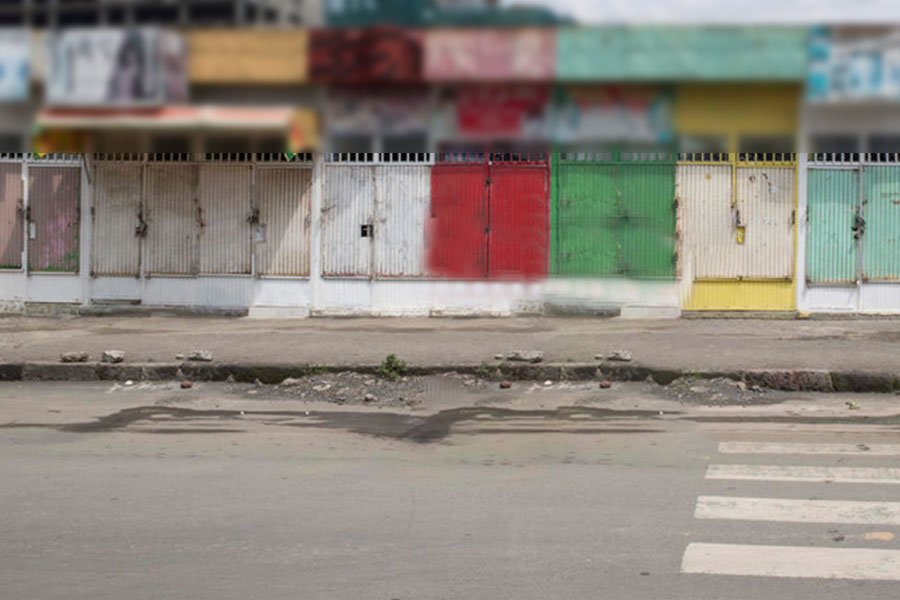
Radar | Sep 19,2020
Jul 13 , 2020
By Halima Abate (MD)
The curve had seemed to be flattening, but the number of Novel Coronavirus (COVID-19) cases has recently been rising in various parts of the world, straining and outpacing the health system’s operations. This has been posing severe challenges to other essential services, but it is also shedding light on how to coordinate and execute actions to maintain essential non-COVID-19 related health service and mitigate the risk of the health system’s collapse.
The strain on the system is happening in more ways than one. The rapidly increasing demand on health facilities as a result of a growing number of COVID-19 patients threatens patients and health professionals with exposure to the virus, contributing to an unwillingness to visit health centres. It also attracts resources away from the delivery of other services.
There is thus the need to evolve healthcare delivery systems to adjust to the challenges brought on by COVID-19 to maintain access. With digital technologies undoing the way we produce goods and deliver services, the obvious answer seems tele-health.
It is a set of methods to enhance the provision of virtual health and health-related services through communication technologies. Digital health technology is increasingly being used to maximise and disseminate medical expertise, reduce the cost of health services and eliminate the disparities in access to health. The last part is pertinent in a country like Ethiopia, which has more people in rural areas than it does in cities where there are better road and health infrastructure.
There have been some attempts toward integrating health services with digital technologies in Ethiopia. There is, for instance, telemedicine - which includes telephone communications with patients but has been sparsely utilised as a result of challenges such as the lack of encouraging payment structures.
Despite the growth of the ICT sector over the past decade and the obvious fact that there have been ongoing efforts to exploit information technology, Ethiopia found itself 151th place on the index of the World Bank in 2016. There have been some attempts at laying the foundation for an e-health policy, but in the absence of a national tele-health policy or strategy, the implementation of delivering health services digitally will be hampered.
To ensure that this is realised, there needs to be a development of the basic ICT infrastructure to meet the requirements of not only larger traffic but also reaching citizens in far off places. This is the sort of infrastructure only the government is in place to provide and thus falls on its shoulders to ascertain that those in rural areas get adequate access to the internet.
Just as important is the development of a strong digital and data protection law in the aide of the regulation of these services. It will be hard to attract people to digital health technologies if they have the fear that their health data will not be adequately protected. This will require inter-ministerial collaboration between health and communications agencies.
The combination of broad access to the internet and the institution of tight regulation will be the most effective mechanism of addressing the challenges caused by COVID-19. It will encourage people to continue to seek healthcare even as hospitals fill with COVID-19 patients, access to health workers becomes scarce, and hospitals and clinics are grappling with exposure to the virus. It is not a complete answer, but it can be a major part of the solution.
Fortunately, there are many private players, including in the ICT sector, eager to participate in the fight against COVID-19. Stakeholder engagement and consultations can create conducive environments necessary for hammering out a multi-dimensional digital health framework that would maximise the benefits for the most vulnerable and realise sustainable socioeconomic progress.
PUBLISHED ON
Jul 13,2020 [ VOL
21 , NO
1055]


Radar | Oct 31,2022

Fortune News | Sep 14,2024

View From Arada | Sep 23,2023

Life Matters | Nov 16,2024

Radar | Mar 04,2023

My Opinion | 131499 Views | Aug 14,2021

My Opinion | 127855 Views | Aug 21,2021

My Opinion | 125833 Views | Sep 10,2021

My Opinion | 123463 Views | Aug 07,2021

Dec 22 , 2024 . By TIZITA SHEWAFERAW
Charged with transforming colossal state-owned enterprises into modern and competitiv...

Aug 18 , 2024 . By AKSAH ITALO
Although predictable Yonas Zerihun's job in the ride-hailing service is not immune to...

Jul 28 , 2024 . By TIZITA SHEWAFERAW
Unhabitual, perhaps too many, Samuel Gebreyohannes, 38, used to occasionally enjoy a couple of beers at breakfast. However, he recently swit...

Jul 13 , 2024 . By AKSAH ITALO
Investors who rely on tractors, trucks, and field vehicles for commuting, transporting commodities, and f...

Jun 28 , 2025
Meseret Damtie, the assertive auditor general, has never been shy about naming names...

Jun 21 , 2025
A well-worn adage says, “Budget is not destiny, but it is direction.” Examining t...

Jun 14 , 2025
Yet again, the Horn of Africa is bracing for trouble. A region already frayed by wars...

Jun 7 , 2025
Few promises shine brighter in Addis Abeba than the pledge of a roof for every family...

Jun 29 , 2025
Addis Abeba's first rains have coincided with a sweeping rise in private school tuition, prompting the city's education...

Jun 29 , 2025 . By BEZAWIT HULUAGER
Central Bank Governor Mamo Mihretu claimed a bold reconfiguration of monetary policy...

Jun 29 , 2025 . By BEZAWIT HULUAGER
The federal government is betting on a sweeping overhaul of the driver licensing regi...

Jun 29 , 2025 . By NAHOM AYELE
Gadaa Bank has listed 1.2 million shares on the Ethiopian Securities Exchange (ESX),...